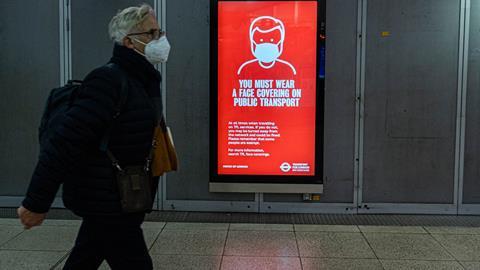Government departments have agreed millions of pounds’ worth of contracts with major law firms ahead of a public inquiry into the UK’s handling of the coronavirus pandemic.
National firm Burges Salmon has secured a £9.8m contract with the Cabinet Office to provide legal services to the inquiry, which is chaired by former Court of Appeal judge Baroness Hallett and is due to hold its first preliminary hearing next month.
A senior solicitor or partner at the firm will act as solicitor to the inquiry and advise Hallett on ‘topics and witnesses for public hearings, the scheduling of such hearings and taking evidence and witness statements from relevant organisations and individuals’, according to the contract specification.
Listed firm DWF secured a £5m contract with the Department for Education in June to ‘supplement capacity available from [the] Government Legal Department to support the Covid-19 inquiry’, according to a government database of public contracts.
International firm Gowling WLG won a £3.6m contract from the Department for International Trade while fellow international firm Pinsent Masons was awarded two contracts worth a total of nearly £10m from the Department for Health and Social Care (DHSC) and the Cabinet Office.
Pinsent Masons was given a £7m contract for ‘the provision of legal services to support the Cabinet Office response to the Covid-19 public inquiry’, as well as a £2.17m ten-month contract for providing legal advice to DHSC.
The government has also awarded three contracts worth just over £33m to Legastat, Epiq Systems and Anexsys for ‘e-disclosure and review services’ for a number of government departments in relation to the inquiry.
A spokesperson for the Government Legal Department told Westminster website Politico, which first reported on the contracts, that the government’s work on the inquiry ‘requires significant legal support which departments will procure at their own discretion from approved internal and external sources’. They added: ‘All appointments represent value for money and ensure that the Inquiry can fulfil its remit.’
This article is now closed for comment.




























13 Readers' comments